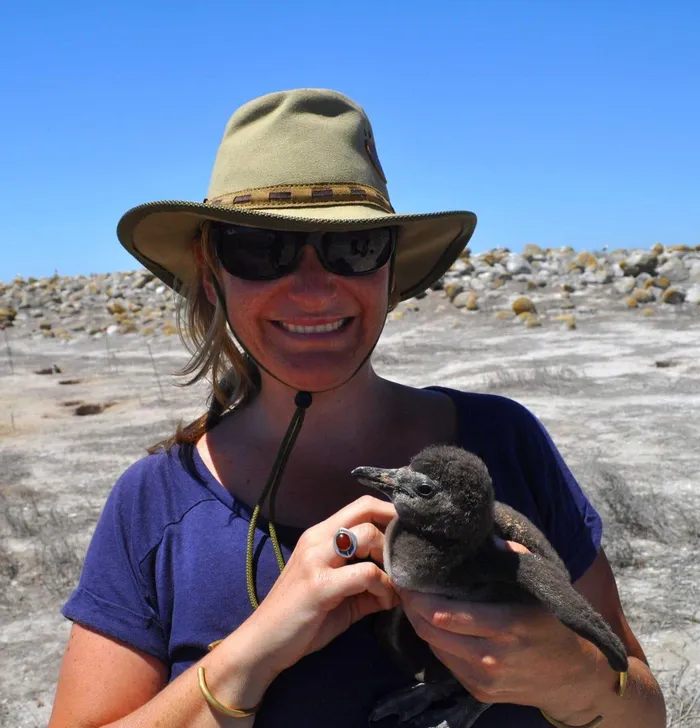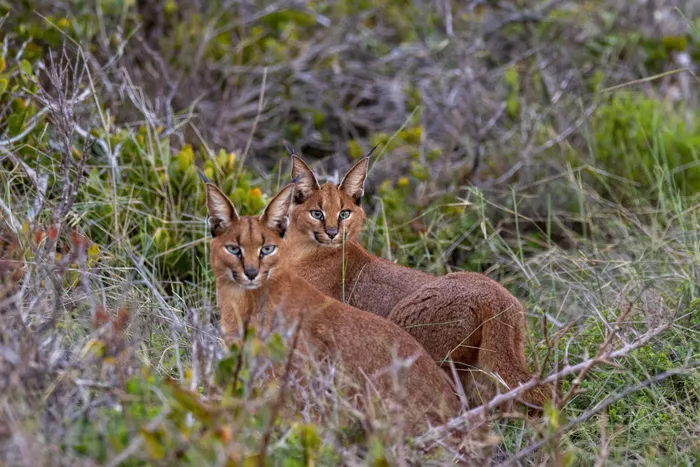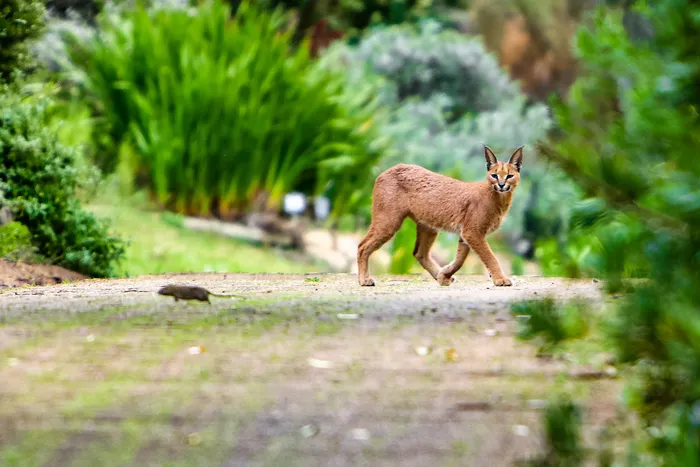
Professor Jacqueline Bishop from the Urban Caracal Project will discuss how caracals adapt to living in urban environments, the unique threats they face, and how the project tracks individual animals later this month.
Image: Urban Caracal Project
Professor Jacqueline Bishop from the Urban Caracal Project will discuss how caracals adapt to living in urban environments, the unique threats they face, and how the project tracks individual animals at the Gordon’s Bay Yacht Club, on Thursday, October 23 at 6:30pm.
The Urban Caracal Project tracks and studies caracals living on the Cape Peninsula.
Professor Bishop is an evolutionary ecologist and conservation biologist. She is especially interested in how wildlife responds to human-driven changes in both natural and transformed landscapes.
Her work spans a wide range of species across Southern Africa, from elephants and leopards to penguins and bats, and more recently includes studies on dingoes in Australia. She combines animal behaviour, ecology, health, and evolutionary genetics to address pressing conservation questions.
Caracals are an example of a species that is highly adaptable to environmental changes. Professor Bishop will share key findings, explore the challenges of city living for wildlife, and highlight the importance of public engagement in caracal research. The talk will also feature photography of caracals in and around Cape Town.
Tickets are R125. Booking is essential, as seats are limited. Bar and restaurant facilities will be available. Reservations can be made via WhatsApp at 076 469 6485 or online via smalltalx

The Urban Caracal Project tracks and studies caracals in urban environments on the Cape Peninsula.
Image: Gilbert Reinhardt

The Urban Caracal Project has established that rodents are a primary food source for caracals that live in close proximity to humans.
Image: Jacque Smit
Related Topics: